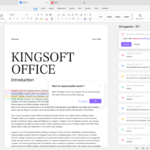Davis Bacon Compliance: Best Practices for Contractors to Avoid Penalties
It is crucial for contractors working in the construction sector to comprehend and abide by the Davis-Bacon Act. Federal legislation known as the Davis-Bacon Act, passed in 1931, sets the prevailing pay criteria for labourers and mechanics employed on federally funded construction projects. It seeks to guarantee that contractors compete on an even playing field and that workers on these projects receive fair wages and benefits. On the other hand, a contractor’s image may suffer, and heavy financial fines may result from not meeting the Davis-Bacon requirements. This blog will discuss the Davis-Bacon Act, its regulations, and best practices for contractors to stay compliant and avoid fines.
Understanding the Davis-Bacon Act
Davis-Bacon Act applies to all federally funded construction projects with contract values over $2,000. These projects can range from highways and bridges to public buildings and infrastructure. The law requires contractors and subcontractors to pay their employees and technicians the wages and benefits for similar work in the project area.
Key provisions of the Davis-Bacon Act include:
- Prevailing Wages: Contractors must pay their employees a prevailing wage appropriate for their particular trade and location as assessed by the U.S. Department of Labor. Usually, these salary calculations are revised once a year.
- Certified Payroll Records: Contractors must keep precise and accredited payroll records that contain details about each employee’s identity, occupation, number of hours worked, and pay rate.
- Weekly Reporting: Contractors must send certified payroll reports to the contracting agency with information on all hours worked by each technician and labourer each week.
- Compliance with Apprenticeship and Training Programs: Apprentices must receive a set percentage of the journeyman rate, and contractors must adhere to particular apprenticeship and training criteria.
- Benefit Payments: As the wage determinations state, contractors must offer fringe benefits and compensation. These benefits may include health insurance, retirement benefits, and other things.
Davis-Bacon Compliance Best Practices
- Stay Informed: An essential aspect of Davis-Bacon compliance is staying current on available salary levels, course requirements, and U.S. law changes. The workplace frequently updates wage decisions; contractors should always use the most recent wage rates.
- Accurate Record Keeping: Proper record keeping is essential for Davis-Bacon to comply with regulations. Contractors must maintain detailed and accurate payroll records for all employees. These records should include hours worked, pay rates, fringe benefit contributions, and other pertinent information.
- Certified Payroll Reports: Ensure that accredited payroll reports are submitted on time and in the required manner. These reports should accurately reflect the hours worked and the salary received by each employee. Any discrepancies or errors in these reports could cause compliance problems.
- Compliance with Fringe Benefits: Employees must understand and comply with fringe benefit requirements outlined in compensation decisions. Ensure that fringe benefits are provided to employees as specified and contributed correctly.
- Regular Employee Training: Regularly train employees and supervisors on Davis-Bacon compliance requirements. Make sure everyone understands the importance of compliance and the consequences of non-compliance.
- Subcontractor Monitoring: If you are a general contractor, monitor your subcontractors. Ensure they meet the Davis-Bacon requirements, as their actions will affect your compliance.
- Consult with Experts: Consider seeking guidance from experts or consultants specializing in Davis-Bacon compliance. They can provide valuable insight and help ensure your company stays compliant.
- Internal Audits: Conduct routine internal audits to identify and address compliance problems. You can avoid possible fines and identify issues early with these audits.
- Employee Communication: Encourage open communication between you and your staff. Urge them to report any issues with non-compliance or wage breaches. Resolve any disputes amicably and quickly.
- Documentation Retention: After finishing the project, retain all documents about Davis-Bacon compliance for at least three years. In the event of an audit or investigation, this paperwork may be necessary.
Penalties for Non-Compliance
There are many fines and repercussions for breaking the Davis-Bacon Act, including:
- Financial Penalties: Besides paying back underpaid employees’ compensation, contractors may be subject to civil penalties. Depending on the seriousness and regularity of the infractions, these penalties may have different amounts.
- Contract Termination: Contractors that violate federal regulations run the possibility of having their federal contracts terminated, which can significantly affect their company.
- Debarment: Contractors may not be allowed to work on more federally sponsored projects. A contractor may be barred for a predetermined amount of time, which can substantially impair their chances of getting government contracts.
- Legal Actions: Contractors may be subject to litigation brought by employees or whistleblowers in addition to civil penalties.
- Reputation Damage: Non-compliance can tarnish a contractor’s reputation, affecting their ability to secure contracts and maintain business relationships.
Conclusion
To avoid fines and legal repercussions, contractors in the construction sector need to give Davis-Bacon compliance priority. The first step is to comprehend the provisions of the Davis-Bacon Act. Contractors must remain up-to-date, keep precise documentation, submit certified payroll reports, and guarantee adherence to wage and benefit policies. It’s also essential to have regular staff communications, supervise subcontractors, and provide training. Getting professional guidance from Foundation Software helps improve compliance even more.




















